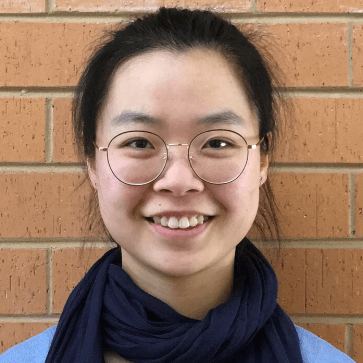Could you tell us a bit about yourself and your academic background?
 I am from a small coastal city in the southwestern Guangdong Province, near the most southern part of China. The tropical climate in my hometown is far too humid to grow wine grapes, but I do enjoy the beverage!
I am from a small coastal city in the southwestern Guangdong Province, near the most southern part of China. The tropical climate in my hometown is far too humid to grow wine grapes, but I do enjoy the beverage!
During my Bachelor degree in clinical medicine at Southern Medical University in Guangzhou City (2010-2015), I found I enjoyed understanding the basic science of medicine more than working in hospitals. To follow my strong sense of curiosity, I decided to change my future direction to research. I volunteered to assist with experiments in the Neurobiology Department at the university, which allowed me to experience scientific research firsthand and interact with many researchers.
I jumped at the chance to study a Masters degree at the University of Adelaide in Viticulture and Oenology (2015-2017), because this complex but interesting field excited my scientific curiosity. There are contributions from multiple organisms (grapes, microorganisms, pests, cover crops, etc), chemical and biochemical reactions from grapes to wines, physical processes in every step of vinification, and influences from nature and human activity in this area. For my Masters research project, I tested several previously isolated lactic acid bacteria strains for their malolactic fermentation ability in wines with high alcohol and low pH. I also tested them in co-inoculated fermentations with Saccharomyces yeast.
To learn more about industrial wine production after my Masters degree, I worked in vintage positions in Australia and the USA including;
- 2018 Berri Estates (Riverland Region, Australia) , vintage cellar hand
- 2018 Owen Roe Winery (Yakima Valley, USA), harvest intern
- 2019 Berri Estates , vintage assistant winemaker
I gained experience in cellar vinification operations, fermentation management, laboratory chemical analysis and process monitoring. These experiences brought me useful knowledge, practical skills, objective views about different cultures and friends with various backgrounds.
Being exposed to commercial wine production, I realised that the fruit was the primary and possibly crucial contributor to the styles and quality of wines. Therefore I applied for the PhD project on grapevine physiology in the ARC Training Centre for Innovative Wine Production at Charles Sturt University. It is another new area for me again!
Could you introduce us to your project and what it involves?
 My PhD project “The Link between Cell Vitality and Potassium in Grape Berries” commenced in July 2019.
My PhD project “The Link between Cell Vitality and Potassium in Grape Berries” commenced in July 2019.
As berries mature they transition to desirable products, drawing considerable attention from both grape growers and winemakers. Despite numerous studies on changes in grape berry chemical composition during ripening (mostly related to sugar, acid, colour, aroma and flavour) the underlying physiological processes and regulatory mechanisms of berry ripening still require further investigation at the cellular level.
Climate change-driven temperature increase is believed to speed up berry ripening, likely impacting the final period of berry development which may affect harvest or winery input. During the mid- to late- ripening stage of berry development it has been reported that there is a loss in berry weight, cell death and the loss of cell membrane integrity in the mesocarp of some wine grape cultivars. The end of sugar and K+ accumulation into the berry was also observed in this stage.
As K+ is the major cation in living cells, changes in K+ dynamics at the cellular level may be associated with this period of berry senescence. Additionally, energy availability and cell membrane function are important to maintain cell vitality. Samples of berries from different stages of ripening will be analysed for the metabolites related to respiration. A method to assess cell membrane function will be developed and accessed in berries as they ripen. K+ nutrient supply and K+ membrane transport will be investigated and discussed.
The outcomes of this work will provide insights into the developmental transition from ripening to senescence in wine grapes.
What can you see yourself doing in the future?
I will be surrounded by experiments and data over the coming years, trying to find the appropriate ways to solve problems. Although I won’t limit myself to only ‘academic research’ after the completion of this project, I hope I can still enjoy researching and exploring unknown worlds in the future.
